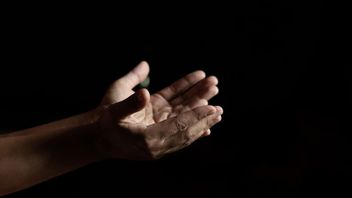
JAKARTA - Beaten by toddlers can cause parents to feel annoyed, embarrassed, and even angry. Parents are worried that the aggressiveness of toddlers indicates that they have failed as parents.
However, most toddlers have hit. The way you respond to a child's stroke is the key to stopping it from the start. Here are things you need to know about the habit of hitting toddlers, including the reason children like to hit and how to deal with them, reports Parents, Monday, December 30.
There are several reasons why children beat their parents, including:
1. Children do not know how to manage feelings or express them in a more socially acceptable way.
2. Children do not have language skills or impulse control to deal with emotions.
3. Children want their needs met, often without thinking about the consequences.
4. Children use violence to try to get what they want. A child who hits his parents when they say it's impossible to hope that the violence will change the minds of their parents.
The way you respond to a punch will affect the chances of your child hitting again. Read the following tips to respond when a toddler hits.
Create house rules that uphold respect. Explain that hitting, kicking, biting, or committing acts of physical aggression is not allowed in your home. Make rules in a positive way if possible. Instead of saying, "Don't hit," say, "Use a polite touch." Talk to the child about the rule to make sure they understand the consequences of the offense.
If your child hits you, say firmly, 'Don't hit. Hit it hurts.' Make sure your message is consistent to teach your child that hitting it is not allowed and you won't tolerate it.
If children know the rules but keep hitting, use the following consequences to prevent them from hitting again.
1. Time out: For some children, time out can be the most effective way to prevent them from hitting again. Time out teaches toddlers how to calm down and keep them away from the environment. It's important to teach them how to organize themselves during this quiet time.
2. Loss of privileges: Other children may need additional consequences. Revocation of privileges can be an effective disciplinary strategy. Limit toddler access to certain electronic or toy devices. The younger the child, the less time they need to stay away from an object.
3. Compensation: Ask your child to do additional tasks or ask them to draw for you as a way to make up for mistakes.
Strengthening good behavior with positive consequences can encourage toddlers to stop hitting. Pay attention to when children are good. Pay attention to the moments when children show the behavior you want to see and praise them when you see them. This will strengthen these behaviors and make them more likely to do these behaviors in the future. For example, praise or reward children for using "soft touch".
Avoid telling the kids, "Don't hit." Instead, say things like "use your soft hands" or "unveil your arms." Research has shown that it is more effective in expressing orders in positive form than negative.
Also teach children the skills of managing anger. When they feel angry or upset, encourage their children to see books that match their age, draw, take a deep breath, or go to their rooms.
And, talk to children about feelings, such as sadness and frustration. Discuss the importance of handling these feelings in the right way and helping children find strategies to deal with their emotions safely.
If you use a punch as a punishment, your child will be confused about why you can hit and they shouldn't. Instead of teaching self-control, blows can increase child aggressiveness.
Children learn more about the behavior of what they see their parents doing, than what they hear their parents say. Be role models of the behavior you want to see in your child. Show them how to deal with anger, sadness, and disappointment in a socially appropriate way.
If you have a bigger child who likes to hit or you have a very aggressive preschooler or toddler, look for professional help. Talk to pediatricians about your concerns. They will probably refer the child to undergo an evaluation to help determine the cause of the aggression and make plans to deal with it.
Sometimes, the underlying problem can lead to aggression in children. For example, children with hyperactivity disorders of attention deficits (ADHD) or oppositional disobedience disturbances are more likely to hit. At other times, children with cognitive delays or developments will hit because they do not have the ability to use words or manage their pulses.
The English, Chinese, Japanese, Arabic, and French versions are automatically generated by the AI. So there may still be inaccuracies in translating, please always see Indonesian as our main language. (system supported by DigitalSiber.id)











